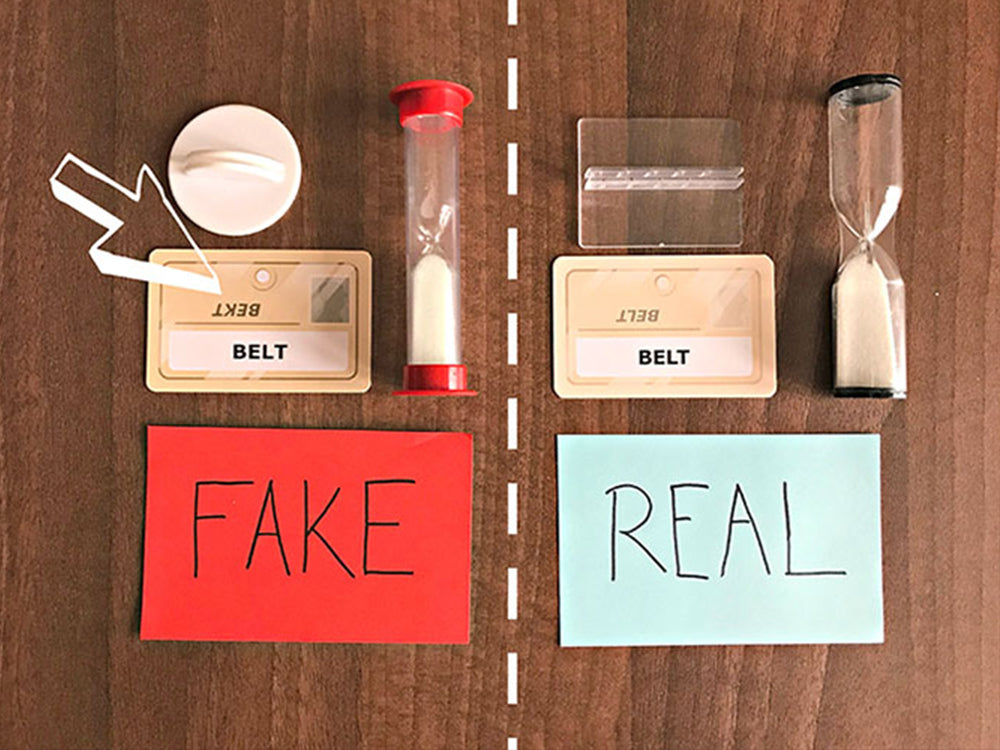Member Shop In-App
on first in-app purchase

Value for money. It is a thing that we all strive for in this capitalist world but at some point, we have to ask, at what cost. As the board game industry moves on in this golden age, where more games are being produced for the worldwide market than anytime in history, there is money to be made, an estimated US$9.27billion in fact. And of course where there is money, there will be people who would want to exploit it beyond the barriers of morality and legality. The most common sight of this being on sites like Amazon, Ali Express, Lazada and the like. This is due to third party sellers getting a popular platform to sell from easily, cheaply and for the most part anonymously. And sometimes, it gets even more unscrupulous when such a seller touts their goods to be unopened, brand new and is the original, when in actuality, it is not.
That being said, we cannot just put the blame on the sellers as it can also be argued that with so many fake games floating around, that there is customer demand. So let's get into detail and see what one will get in a pirated copy, the effects of it on the industry and its domino effects.

(Xeo Lye talking about Board Game Design during the SG Card & Boardgame Event)
The first thing to note as was discussed by local designer and publisher, Xeo Lye at one of our board games seminars is that imitation is the highest form of flattery and it usually takes the path of least resistance. That means that more than likely only worldwide hits like Pandemic, Settlers of Catan, Carcassonne, etc. are the ones that illegal printers will try to fake usually. On top of that, they usually will fake games that are easy to do so. Such as games with a small amount of pieces or easily mass produced. Such as dice, cubes, etc.. Also, board gaming is a luxury for the most part and thus if a game is very expensive, the person who will buy that game, will usually not mind spending the extra cash to get the quality pieces.

(Detailed miniatures that would be very difficult to replicate)
A good example is the CMON Kickstarter hit, Rising Sun with its detailed miniatures and tokens. Fake copies of which I have been unable to find or have ever seen.


(The actual product will prove a clearer significance in difference)
You can see from the above pictures, the fake copy is obvious with its faded look, cheaper made tokens and components. The being said, functionally, the game is still there and can be played in its entirety. This is the biggest problem for board games publishers as unlike computer games, pirated copies tend to lack the ability to play certain functions or be updated as printing varies.
Related: Manufacturing for The Win
At this point, it has to be pointed out that there is a difference in the board game print & play community and piracy. As there are those that argue when even publishers allow or embrace people printing and playing their games, then piracy in the industry is not as bad. The proof being the abundance of print and play game files on boardgamgeek.com, Asmodee, the world's most popular board game website and digital versions like tabletopia.
But for print and plays, the key difference is its intent of personal use and non profit. An honour system that the board game community is proud of as it started as a community sharing effort and still holds true to that that ethos. Thus, intent is key.
(A Print & Play version of Secret Hitler by the publisher)
Now, intent aside, what are the downsides of piracy and its effects on this industry we all love. Well, firstly and obviously, it is illegal and immoral. It is the stealing of people's hard work and profiting from it without giving the designer and publisher their dues for bringing the game into reality. Also, on a very personal level, I do not think anyone likes a person who takes credit and the rewards of their hard work and should reciprocate with similar behaviour. For example, someone I knew bought a game that she did not know was fake and after playing it and finding it not to her liking, decided to resell the game but when I told her to inform the person buying it, it was a fake copy, she said it was ok not to as she was tricked too. Basically, an evil begets evil attitude.
Also, most individual board game companies are not looking at millions and billions in revenue and thus are hit harder by each unsold copy. The domino effect being that the less copies are sold the less the publisher will feel this designer and his/her games are worth and thus less games are made from that person. So in effect, to save those few dollars, one has deprived more fun games to the world for something one could have easily afforded.

In conclusion, help your fellow man and gamer. No one is expecting all gamers to be a Saint but just be a normal moral person. Support the industry, the hobby and buy the originals, so we can all indulge in this hobby and see it grow for times immemorial.

{"one"=>"Select 2 or 3 items to compare", "other"=>"{{ count }} of 3 items selected"}